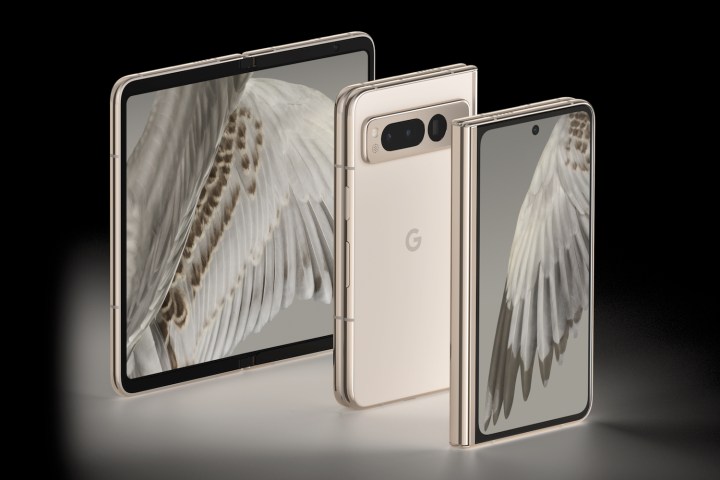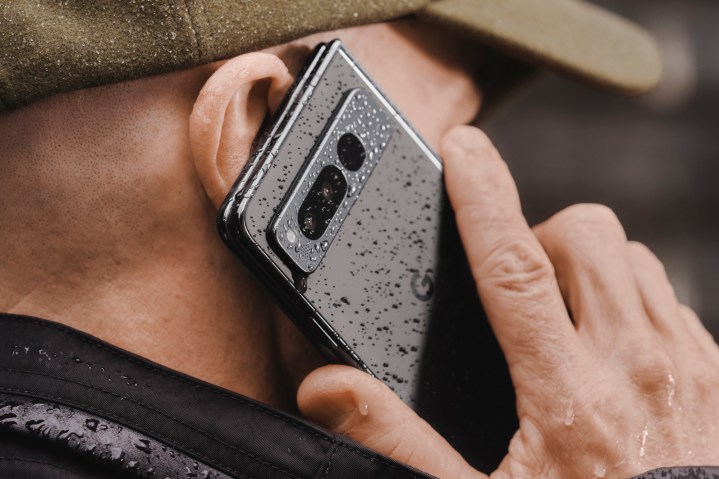
I am pretty excited about the Google Pixel Fold. There’s a suitable amount of buzz inside me when I think about trying it out and when I consider how it may impact the growing folding smartphone space over the coming months.
I really do think it is one of the most important smartphone releases of the year. But the more time passes, and the more that happens around the Pixel Fold, the more I think I shouldn’t be quite so excited about it.
Why the Pixel Fold matters

The Pixel Fold matters, and we should be excited about it. Google obviously has a massive amount of brand awareness around it, and the Pixel name has bought itself a fair amount of goodwill over the last few years since the Pixel 6 came out. Plus, there’s still plenty of buzz around big-screen foldable devices. Google will be the second major manufacturer to release such a device in the U.S. And it’s only the fourth in the U.K., where it’s challenged by the disappointing Honor Magic Vs and the Huawei Mate X2, which doesn’t have Google services.
Google’s cameras are almost always excellent, and cameras on foldables — in general so far — have been decent, but not outstanding. The Pixel phone’s unique design looks fantastic, and carrying it across to the Pixel Fold gives it identity and desirability. And because the Pixel Fold doesn’t go in exactly the same direction in terms of hardware as the Samsung Galaxy Z Fold 4 — it’s closer to the Oppo Find N2 — it’s even bringing something new to the table at the same time.
All of this puts Google in a fantastic position. The Pixel Fold has “winner” stamped all over it, not just from a consumer point of view, but also because it’s shaping up to be essential competition for Samsung’s mighty Galaxy Z Fold 4 and forthcoming Galaxy Z Fold 5. Combine this with Motorola’s impressive Razr Plus emerging as a legitimate alternative to the Galaxy Z Flip 4, and we’re finally looking at some actual choices in foldables.
What could go wrong?

There’s genuinely plenty to be excited about, but there are also a lot of reasons to temper that enthusiasm. The first warning sign was the gap between announcement and release, which has sadly become the second reason to be a bit concerned. Delivery times have started to slip as we near release, just as I feared they would. Some who have preordered are seeing dates move to early July, and most are being given a shipping window of around a week, suggesting Google doesn’t have much confidence in being able to get the device out the door on time.
Shipping dates aren’t changed for good reasons — they’re changed for bad ones. It could be supply issues from all sides, it could be changes to the software, or it could be quality control — and all these are very worrying because, unfortunately, it won’t be the first time Google has been plagued by them. Our experience with the Pixel 7 and Pixel 7 Pro has been full of ups and downs, and the Pixel 6 series was hardly without fault.
If parts supply, manufacturing delays, or worse — hardware or software problems — are to blame for the shipping dates changing, then we should be worried about the final product. Problems such as these can introduce inconsistency, and as the Pixel 7 is already a gamble, it’s not unreasonable to fear the same about the Pixel Fold. Inconsistency is not good on an $1,800 phone, especially when durability is always of heightened concern on a foldable.
Although Google has built phones and tablets for years, this is the first time it has built a folding phone, and they’re not easy to get right. Remember, Samsung found out the hard way with the original Galaxy Fold.
The Pixel Tablet hasn’t helped

The Pixel Tablet was announced at the same time as the Pixel Fold and is already in the hands of reviewers. Google has built a lot of tablets in the past, so it should be a pretty safe product. If it was an all-out success, then my concern over the foldable would be slightly lessened. But the trouble is, it’s once again a mixed bag.
Digital Trends’ Mobile Editor Joe Maring called it “the worst Pixel I’ve ever used” in his review, giving it a woeful 4/10 score. That’s bad. Others reviewshave been slightly better, but few are really raving about it.
My Pixel Tablet arrived a few days ago, and it has been surprisingly decent so far, but I’m convinced I’ve got a guardian angel at Google sending me the best devices to try, as my Pixel 7 and Pixel 7 Pro are also excellent. The fact is, the Pixel Tablet seems to be yet another hit-or-miss product from Google, where you most probably will get a good one, but you also may not. I’m very aware that my luck with Google hardware may not last and that the device I’m looking forward to most may be the one to end my run.
Inconsistency is on the brink of killing my enthusiasm for Google products, and I don’t want any sort of nagging doubt in the back of my mind about a device that costs $1,800. Really, I shouldn’t have any such doubts at all about a product from one of the best-known and richest companies on the planet, with more than a decade of making mobile hardware products under its belt.
I want to be proven wrong about the Pixel Fold, but I just don’t quite trust Google enough to have the confidence to avoid concerns entirely.
Editors' Recommendations
- The 4 biggest things Google didn’t announce at Google I/O 2024
- This is our best look yet at the Google Pixel 9 series
- How to watch Google I/O 2024
- The 10 most important things to know about the Google Pixel 8a
- Motorola’s next folding phone just leaked. Here’s what it looks like

